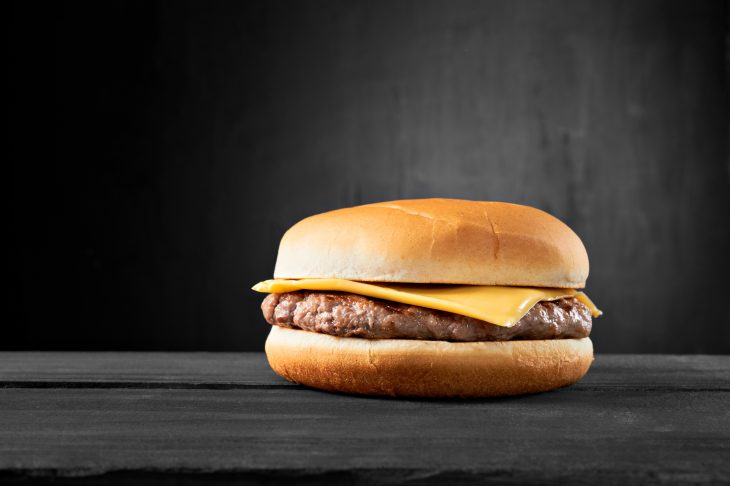
Ah, the tastiest of American classics – the cheeseburger! From a classic double stack to an over-the-top mega burger with all the fixings, nothing screams comfort food quite like biting into one of these juicy servings. But beyond that satisfying flavor and texture lies facts about the nutrition hidden within this delicious sandwich. If you ever thought about how much fat, protein, or sodium was in your favorite cheeseburgers before digging in, prepare to be enlightened; here are 19 tantalizing facts about cheeseburger nutrition that may make you hungry for more!
Calories
The calorie content of a cheeseburger can vary significantly based on the size, ingredients, and preparation method. An average cheeseburger with a single patty has 303 calories.
Protein
Cheeseburgers can be a good source of protein, thanks to the meat patty and cheese. The average cheeseburger with a single patty has 15 g of proteins.
Carbohydrates
While the meat and cheese are low in carbs, the bun contributes most to a cheeseburger’s carbohydrate content. The average cheeseburger with a single patty has 30 g of carbohydrates.
Fats
Cheeseburgers can be high in fats, both saturated and unsaturated, due to the meat, cheese, and any added sauces or dressings. The average cheeseburger with a single patty has 14 g of fat.
Sodium
Given the processed nature of many cheeseburger ingredients, the sodium content can be quite high, coming in at 589 mg for an average cheeseburger.
Sugar
The average cheeseburger with a single patty has 5 g of sugar. While not a significant source, cheeseburgers can contain sugar, especially if sauces or pickles are added.
Fiber
The fiber content in a cheeseburger mainly comes from any included vegetables and the bun, particularly if it’s whole grain. The average cheeseburger with a single patty has 1 g of dietary fiber.

Essential Nutrients
Cheeseburgers can provide certain essential nutrients, such as iron and calcium, derived from meat and cheese, respectively.
Variations Impact Nutrition
The nutritional content can change drastically based on variations and customizations, such as using different types of meat, cheese, or adding extra toppings.
Portion Size
A standard cheeseburger can range from a small, single-patty burger to a large, double, or even triple-patty burger. The difference can significantly impact its nutritional value.
Cholesterol
Due to the meat and cheese, cheeseburgers can be high in cholesterol.
Trans Fats
Depending on the cooking method and quality of ingredients, cheeseburgers may contain trans fats, which are considered harmful when consumed in excess.
Impact on Health
Regularly consuming high-calorie, high-fat foods like cheeseburgers can seriously impact your health. It contributes to conditions like obesity, heart disease, and high blood pressure.
Gluten Content
Typical cheeseburgers contain gluten due to the bun. As such, those with celiac disease or gluten intolerance might prefer to avoid it.

Impact of Cooking Method
The cooking method, such as grilling or frying, can impact the cheeseburger’s fat and calorie content.
Vegetarian and Vegan Alternatives
Vegetarian and vegan cheeseburger options are available. These often feature plant-based patties and cheeses, which can alter the nutritional profile.
Importance of Balance
While a cheeseburger can be an enjoyable part of your diet, it should be balanced with nutrient-dense, whole foods, and regular exercise.
Fast Food vs. Homemade
Fast-food cheeseburgers often contain more calories, fats, and sodium compared to homemade versions, where you can control the ingredients and portion sizes.
The “Cheese” in Cheeseburger
The type of cheese used can significantly impact the overall nutritional profile of the cheeseburger. This is particularly because some types of cheeses are higher in fat and calories than others.
Conclusion
When it comes to nutrition, cheeseburgers can be deceiving. Though this comfort food favorite may be delicious, it does come with its own unique set of hidden consequences. While it is okay to treat yourself to a burger every now and then, sometimes we should be aware of how much we actually eat. There are ingredients in a cheeseburger that we may not realize are unhealthy, and the calories and fat levels that come with them can add up quickly. So overall, it pays to remember the nutrition facts behind our burgers: they aren’t as harmless as they may seem!
Was this page helpful?
Our commitment to delivering trustworthy and engaging content is at the heart of what we do. Each fact on our site is contributed by real users like you, bringing a wealth of diverse insights and information. To ensure the highest standards of accuracy and reliability, our dedicated editors meticulously review each submission. This process guarantees that the facts we share are not only fascinating but also credible. Trust in our commitment to quality and authenticity as you explore and learn with us.
